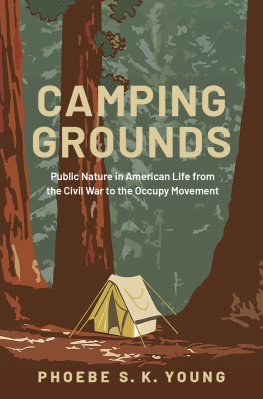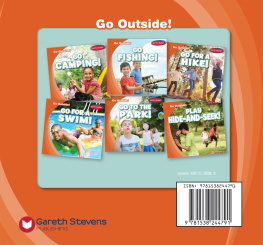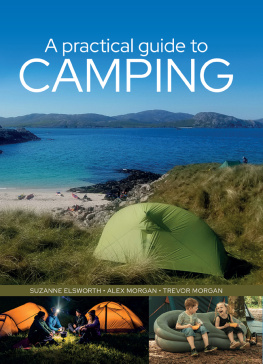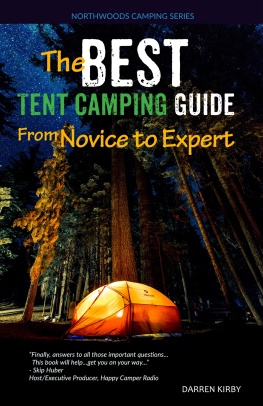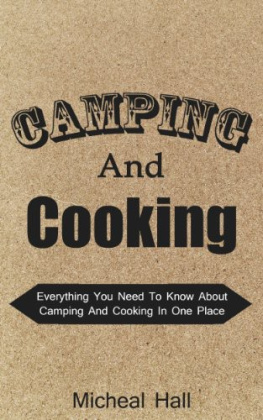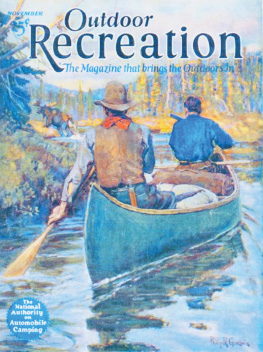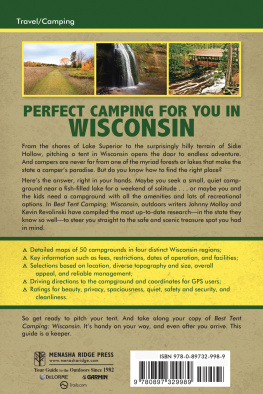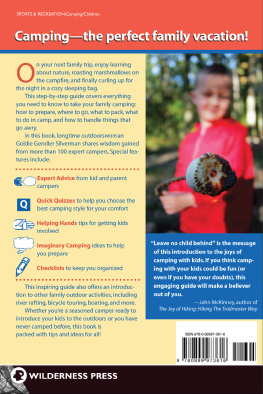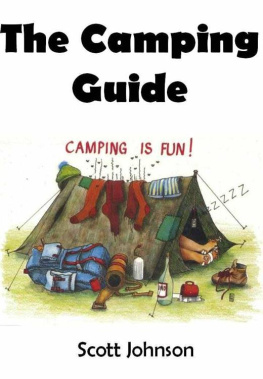Camping Grounds

Oxford University Press is a department of the University of Oxford. It furthers the Universitys objective of excellence in research, scholarship, and education by publishing worldwide. Oxford is a registered trade mark of Oxford University Press in the UK and certain other countries.
Published in the United States of America by Oxford University Press
198 Madison Avenue, New York, NY 10016, United States of America.
Oxford University Press 2021
All rights reserved. No part of this publication may be reproduced, stored in a retrieval system, or transmitted, in any form or by any means, without the prior permission in writing of Oxford University Press, or as expressly permitted by law, by license, or under terms agreed with the appropriate reproduction rights organization. Inquiries concerning reproduction outside the scope of the above should be sent to the Rights Department, Oxford University Press, at the address above.
You must not circulate this work in any other form and you must impose this same condition on any acquirer.
Library of Congress Cataloging-in-Publication Data
Names: Young, Phoebe S. K. (Phoebe Schroeder Kropp), 1970 author.
Title: Camping grounds : public nature in American life from the Civil War
to the Occupy Movement / Phoebe S.K. Young.
Description: New York : Oxford University Press, [2021] | Includes index.
Identifiers: LCCN 2020045699 (print) | LCCN 2020045700 (ebook) |
ISBN 9780195372410 (hardback) | ISBN 9780190093570 (epub) |
ISBN 9780190093587
Subjects: LCSH: CampsUnited StatesHistory. | CampsUnited States
Political aspects. | NatureEffect of human beings on. |
United StatesHistoryCivil War, 18611865. |
Occupy movementUnited StatesHistory21st century.
Classification: LCC GV193.Y68 2021 (print) | LCC GV193 (ebook) |
DDC 796.540973dc23
LC record available at https://lccn.loc.gov/2020045699
LC ebook record available at https://lccn.loc.gov/2020045700
DOI: 10.1093/oso/9780195372410.001.0001
For Noah
Contents
When I started exploratory research for this book and gave an initial conference presentation about it, I was pregnant with my first child. The book will appear in print as he is poised to graduate high school. Reaching the final stages of completing the manuscript, I wondered whether I should share this openly. I asked a graduate student if she thought the story would appear disheartening, or even slightly ridiculous, to aspiring academics or writers. Her response was not what I expected. To her, the idea that someone might keep at the same project for so long and see it through suggested dedication and tenacity. She was probably too polite to add insanity, but she helped me decide that it was worth going public, though neither as a cautionary tale nor a recommended option. Instead, looking back on this long road, I am struck by the fact that I have been as lucky as I was stubborn. And not alone.
Many people and organizations supported me, and my ability to keep working on this book, over the years, and Im grateful for the chance to offer my long overdue thanks and recognition. Multiple sources provided me with crucial funding for research and writing. A Mellon Faculty Fellowship from the Penn Humanities Forum at the University of Pennsylvania aided research in the early stages. The ACLS-Oscar Handlin Fellowship from the American Council of Learned Societies supported a full year of focus on the project in 2010, just before Occupy Wall Street arrived to expand the chronology and scramble the analysis. Grants from various units at the University of Colorado Boulder supported new rounds of research, including an Associate Professor Growth Grant from the Leadership Education for Advancement & Promotion program in 2013, a Kayden Research Grant from the College of Arts and Sciences in 2015, and a Travel Grant from the Graduate Committee for the Arts & Humanities in 2018. In addition, a Faculty Fellowship from the Center for Humanities and the Arts, combined with a university-supported semester of sabbatical, allowed major writing progress in 201617. Another Kayden Research Grant defrayed the costs of illustration, and the Department of History helped secure a subvention for the publication. Without any one of these sources of support, the finish line would have been even further away.
I had the great opportunity to present chunks of this project at conferences and invited seminars, all of which prodded my thinking in important ways. I appreciate the responses of commentators and fellow panelists at the American Society for Environmental History, American Studies Association, Organization of American Historians, and Western History Association. In particular, Kathleen Franz, Lawrence Glickman, John Kasson, Kevin Leonard, and Kathryn Morse provided memorable comments that stuck with me as I worked through tough spots. I was grateful also to have the chance to present works-in-progress with different groups of colleagues and students in the United States, Ireland, and Brazil. For these experiences, I want to thank Shane Bergin, Jorge Simoes De Sa Martins, Anne Fuchs, Robert Hoberman, Michelle Jolly, Sarah Krakoff, Margaret Miller, James C. OConnell, Jed Purdy, Conrad Edick Wright, and others who sponsored and contributed to these productive discussions, from which I emerged with new energy and perspectives on this work.
I appreciate the permission to include in this book revised versions of previously published material. Portions of chapter 3 appeared as Wilderness Wives and Dishwashing Husbands: Comfort and the Domestic Arts of Camping Out, 18801910, in the fall 2009 issue of Journal of Social History (vol. 43, no. 1). An essay for a 2010 anthology provided a critical space for me to think about urban camping, the results of which informed several spots throughout the book. It appeared as Sleeping Outside: The Political Natures of Urban Camping, in Cities and Nature in the American West, edited by Char Miller (Reno: University of Nevada Press). Finally, revised portions of an essay on the Occupy movement appear in chapter 6: Bring Tent: The Occupy Movement and the Politics of Public Nature in America, originally published in Rendering Nature: Animals, Bodies, Places, Politics, edited by Marguerite S. Shaffer and Phoebe S. K. Young (Philadelphia: University of Pennsylvania Press, 2015). Many thanks to Bob Lockhart and Penn Press for permission to republish this work, and even more for the support of that volume and the whole Third Nature endeavor.
Archivists, librarians, and staff provided invaluable assistance at multiple stages. I failed to record the names of every individual who helped me, but I remain deeply appreciative of and continually amazed at the work they all do to make the work of historians possible. Special gratitude to Lauren Bissonette at the Forest History Society; Peter Blodgett at the Henry E. Huntington Library; Frederick Carey, Thea Lindquist, and the whole Interlibrary Loan Department at the University of Colorado Boulder Library; Danielle Castronovo at California Academy of Sciences; Clare Come at Shenandoah National Park; Deborah Dandridge, Kathy Lafferty, and Letha Johnson at the Kenneth Spencer Research Library, University of Kansas; J. Wendel Cox, in the Western History/Genealogy Department of the Denver Public Library; John Gookin, Diane Shoutis, and Shannon Rochelle at the National Outdoor Leadership School headquarters in Lander, Wyoming; Nicole Grady in the Holt-Atherton Special Collections, University of the Pacific; Jo Harmon, Jamie Kingman-Rice, and Nicholas Noyes at the Maine Historical Society; AnnaLee Pauls in Rare Books and Special Collections, Firestone Library, Princeton University; Douglas Remley at the National Museum of African-American History and Culture; and lastly, the dedicated archivists at the National Archives and Records Administration, both in College Park, Maryland, and Denver, Colorado, especially Eric Bittner, Joseph Schwartz, and Cody White.

